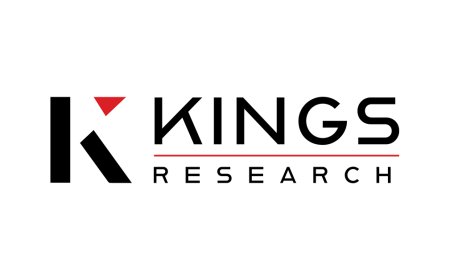Executive MBA vs Regular MBA: Global Recognition & Value
Explore the global recognition and value of Executive MBA vs Regular MBA programs. This detailed forum post compares their international credibility, career impact, and ROI for working professionals and full-time students, helping you make an informed choice for your global business education path.

In the world of business education, the debate between the Executive MBA vs Regular MBA is ongoing and increasingly relevant, especially for professionals and aspirants aiming for international careers. With globalization shrinking borders, the prestige and value of a degree depend not just on curriculum but on how it's perceived globally. This forum post aims to offer insights into the recognition and value of Executive MBA (EMBA) and traditional MBA programs in the global market.
Understanding the Core Differences
Before diving into their global value, it's important to differentiate between the Executive MBA and Regular MBA formats. The Regular MBA is typically pursued by early-career professionals or recent graduates. It involves a full-time commitment, with a duration ranging from one to two years, and emphasizes foundational management concepts, internships, and networking opportunities.
On the other hand, the Executive MBA is designed for working professionals with significant experience, often over 810 years. EMBA students typically attend classes on weekends or in modular formats, allowing them to continue their full-time jobs while learning. This structure is tailored for mid-to-senior level managers aiming to elevate their leadership skills and strategic thinking.
Global Recognition of Executive MBA vs Regular MBA
In terms of international recognition, both degrees enjoy a strong reputationprovided they are from reputed institutions. Top-tier global business schools such as INSEAD, Wharton, London Business School, and IE Business School offer both Executive and Regular MBA programs, giving both formats considerable weight in the global job market.
However, the perception varies slightly depending on region and industry. In countries like the U.S. and UK, where MBA rankings and alumni networks matter deeply, both types of degrees are equally valued if issued by a prestigious institution. In contrast, in emerging markets like India or Southeast Asia, the Regular MBA tends to be more well-known among general recruiters, while the EMBA is appreciated mostly by multinational corporations and top-tier employers who understand its value.
Employer Perspective and Career Trajectory
When comparing the Executive MBA vs Regular MBA from an employer's viewpoint, the distinction lies in the intended outcomes. Regular MBA graduates are seen as fresh talent with new ideas and up-to-date business theories. They are often recruited into entry-level management positions and are expected to climb the ladder gradually.
In contrast, Executive MBA holders are already established in their fields. Employers regard them as professionals with a proven track record who are now equipped with advanced management education to transition into C-suite roles or strategic leadership positions. Thus, while a Regular MBA is a career launcher, an EMBA is a career accelerator.
In terms of value, companies often sponsor Executive MBA programs, indicating their faith in the ROI of such a degree. This backing adds to the EMBAs prestige and can be a powerful statement of global recognition.
Academic and Alumni Network Value
Another crucial factor in global recognition is the strength of the alumni network and academic community. Regular MBA programs often have larger cohorts and provide more immersive on-campus experiences. These facilitate stronger peer networks and frequent international student exchanges, especially in top-ranked programs.
Executive MBA programs, though typically smaller in class size, offer high-caliber peer groups consisting of industry leaders, entrepreneurs, and senior managers from across the globe. This curated network can be more impactful in opening doors to international opportunities and strategic partnerships. Hence, the value of the alumni network varies based on what you seekbreadth or depth.
Return on Investment and Global Mobility
From a financial perspective, both programs can be expensive, particularly when offered by elite business schools. However, the return on investment (ROI) should be measured not just in salary hikes but also in terms of international career mobility, leadership roles, and access to global markets.
A Regular MBA typically sees ROI after 35 years of graduation, depending on industry and geography. Graduates often use their degree to switch industries or move abroad, with popular destinations including the U.S., Canada, Europe, and Singapore.
The Executive MBA has a faster ROI in most cases, often within 12 years, due to minimal disruption in current income and quicker promotion into higher-paying roles. EMBA programs often incorporate international residencies or global immersion modules, further enhancing their global value and exposure.
Which One is Right for Global Impact?
The answer to this question depends on where you stand in your professional journey and your long-term goals. If youre early in your career and looking for foundational learning with international internship opportunities, a Regular MBA offers better global visibility and flexibility.
If youre already established and aiming to make a leap into global leadership roles, especially in MNCs or entrepreneurial ventures, the Executive MBA vs Regular MBA comparison tilts in favor of the EMBA. Its curriculum is often more strategic, focused on global case studies, and designed for immediate application in the workplace.
Moreover, the EMBAs credibility is increasing steadily, with major global rankings like The Economist and Financial Times featuring Executive MBA programs prominently. This inclusion highlights a shift in the perception and value of EMBA degrees across the world.
Conclusion
When comparing Executive MBA vs Regular MBA, the global recognition and value of each depends heavily on institutional prestige, career goals, and the stage of your professional life. Both degrees offer transformative experiences and powerful career outcomes. While the Regular MBA provides a foundation for global careers, the EMBA serves as a powerful tool for executives ready to make a global impact. Choosing the right one isnt just about formatits about the future you envision for yourself.
Read Also: Web Development vs App Development: Which is Better?


































